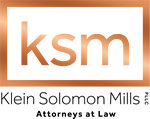With the Covid-19 pandemic inevitably destined to find its way into the world history books, a body of law has evolved that sets the stage for future debates about the separation of church and state. One case to watch is Roman Catholic Diocese of Brooklyn, New York v. Andrew M. Cuomo, Governor of New York, 141 S.Ct. 63 (2020) which arguably champions a religious organization’s right to challenge a government directive and could shape future religious freedom claims.
The U.S. Supreme Court was presented with an application by the Diocese as well as Agudath Israel of America for injunctive relief pending the resolution of certain matters before the Court of Appeals. At issue was New York Governor Andrew Cuomo’s executive order restricting religious services in areas classified as red or orange zones. In ultimately determining by a vote of 5-4 to grant the injunction, the Court issued a very fact specific opinion under the three-prong test of: 1) likelihood of success on the merits; 2) irreparable harm; and 3) public interest.
The Court specifically opined that the Governor’s executive order was not neutral, but instead singled out places of worship insofar as only 10 people could attend worship services in the red zone and 25 people in the orange zone while allowing both essential and nonessential businesses to operate without restrictions in the same respective red and orange zones. (p.3) The Court took note of the fact that essential businesses ranged from campgrounds to manufacturing plants. (p.3)
More persuasive perhaps was that the evidence showed the religious institutions were not taking a passive or irresponsible approach to the spread of Covid-19. Both were taking rigorous safety precautions and adhering to health department protocols, and consequently had no reported outbreaks since reopening their respective places of worship. (p.4) Under these facts, the Court reasoned that the government could utilize less restrictive rules to protect the public’s health and wrote in its majority opinion, “[i]t is hard to believe that admitting more than 10 people to a 1,000-seat church or 400-seat synagogue would create a more serious health risk than the many other activities that the State allows.” (p.5) The bottom line as Justice Gorsuch definitively wrote in his concurring opinion, “[g]overnment is not free to disregard the First Amendment in times of crisis.”
However, religious institutions should not get too comfortable with this ruling. Indeed, the Court did not give religious institutions free reign to defy the government. Even Justice Kavanaugh asserted in his concurring opinion, “In light of the devastating pandemic, I do not doubt the State’s authority to impose tailored restrictions—even very strict restrictions—on attendance at religious services and secular gatherings alike. But the New York restrictions on houses of worship are not tailored to the circumstances given the First Amendment interests at stake.”
The question of how much restriction is too much given the circumstances will no doubt be a main point of contention in future cases. Covid-19 might have felt like unchartered territory for many people, with ever-changing conditions, mutations, and even public health opinions. Unfortunately, there will inevitably be another pandemic or some other crisis that sparks government intervention in people’s daily lives. If your religious organization is considering challenging a government regulation, leadership should work with legal counsel to understand the law and the organization’s rights within that law. As the party making the challenge, you must be able to articulate the “why,” including:
1) Why does the law inhibit your particular religious freedom?
2) Why is the law not the least restrictive way for the government to further its legitimate interest?
3) Why does restricting enforcement advance or not harm the public interest?
Does your religious organization need help navigating a legal challenge or lawsuit? Contact the experienced attorneys at Klein Solomon Mills, PLLC today.
The information contained in this blog does not constitute legal advice, nor does this blog create an attorney-client relationship. KSM attorneys do not blog about pending matters handled on behalf of our clients and will never disclose client confidences.



